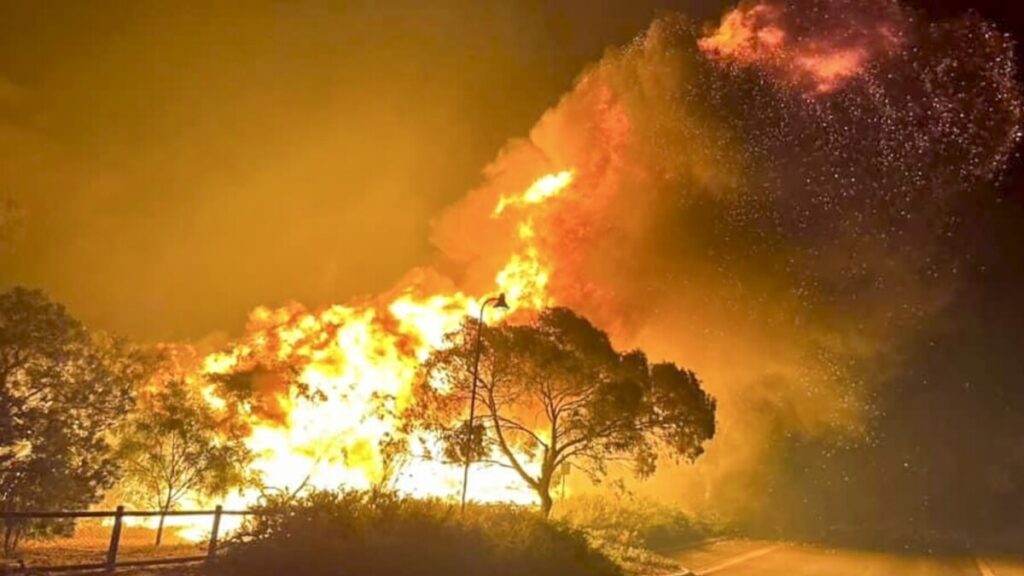
A fire rages in bushland near the West Australian city of Wannaroo, north of Perth in the early hours of Thursday, Nov. 23, 2023. Dozens of residents have been evacuated and at least 10 homes have been destroyed by a wildfire that is burning out of control on the northern fringe of the west coast city of Perth during heatwave spring conditions, authorities say.(DFES via AP)
Dozens of residents have been evacuated and at least 10 homes destroyed by a wildfire burning out of control on the northern fringe of the west coast city of Perth during heat wave spring conditions, authorities said Thursday.
There were no deaths reported, but several firefighters had sustained minor injuries including smoke inhalation, Western Australia state Department of Fires and Emergency Services Commissioner Darren Klemm said.
The fire began Wednesday afternoon in a pine tree plantation on Perth’s northeast edge and was fanned overnight by 60-kilometer (37-mile) -an-hour winds, incident controller Clinton Kuchel said. The cause of the fire is under investigation.
The temperature in Perth was forecast to peak at 40 degrees Celsius (104 degrees Fahrenheit) on Thursday — which is extraordinarily hot for the Southern Hemisphere spring — and winds remained strong.
“Perth is experiencing … heat wave conditions. So overlay that on top of the fire and you can imagine the conditions that our firefighters and our support staff are working on. It’s really challenging,” Kuchel told Australian Broadcasting Corp.
Power poles had been damaged and 544 homes were without power Thursday. Around 130 people spent Wednesday night in an evacuation center, Western Australia Deputy Premier Rita Saffioti said.
“The forecast for today is unforgiving. The temperature is expected to hit a maximum of 40 degrees, and the winds continue to be strong. Today will be a difficult day for everybody,” Saffioti told reporters.
Klemm said the 150 firefighters battling the blaze would take several days to bring it under control.
In the northern Perth suburb of Tapping, Sarah Kilian and her husband stayed to defend their home over Wednesday night. Kilian said most of her neighbors evacuated as embers rained down on their homes.
“Lucky my hubby stomped them out,” Kilian said. “It was just scary all night — absolutely chaotic.”
Scores of wildfires have recently raged across the states of New South Wales, Victoria and Tasmania as Australia’s driest September on record and unusually warm weather brought an early start to the annual wildfire season, which peaks during the Southern Hemisphere summer.






